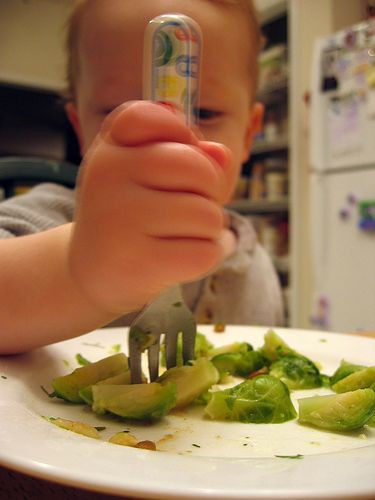Adding Dip to Vegetables Can Help Children Eat More

Adding a small amount of dip to a serving of vegetables helped children sensitive to bitterness eat more, according to study published in the Journal of the American Dietetic Association.
Sensitivity to bitterness is fairly common among children. The distaste for bitterness in some foods may arise from TAS2R38 gene, a PTC phenylthiocarbamide gene which detects chemical structure of PTC similar to toxic alkaloids found in some poisonous plants.
Vegetables become more bitter to carriers of the bitter taste TAS2R38 gene.
"The ratio of tasters to non-tasters varies between populations, but every group has some tasters and some non-tasters. On average, 75 percent of people can taste PTC, while 25 percent cannot,” according to an article published on the website of the University of Utah’s Genetic Science Learning Center.
The article includes contributions by Dr. Steven Wooding of University of Texas Southwestern Medical Center, who did not take part in the study.
Researchers studied around 150 pre-school aged children in the Head Start program who were served broccoli over a 7 week period. Consumption of broccoli increased by 80 percent among bitter-sensitive children when ranch dressing as dip was added to the vegetable served.
"We know that children can learn to like vegetables if they are offered frequently, without prodding and prompting," said Dr. Jennifer Orlet Fisher, director of the Family Eating Laboratory at Temple's Center for Obesity Research and Education.
Dr. Fisher pointed out that not only dressing as dip but using hummus, low-fat yogurt, and applesauce can also improve eating of vegetables for bitter-sensitive children.
Researchers were able to find children sensitive to bitter vegetables by offering each child a cup with increased amounts of bitter-tasting compound found in green vegetables. Each child was asked whether the fluid tasted like water, or was "bitter or yucky." Seventy percent of the children in the study responded "yucky."
"Children with sensitivity to bitterness may avoid certain vegetables, but offering a low-fat dip could make it easier for those foods to become an accepted part of children's diet."
"Our research shows that offering dip is another tool that parents can use to help children learn to eat their vegetables," said Fisher.



























